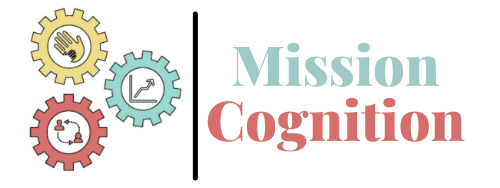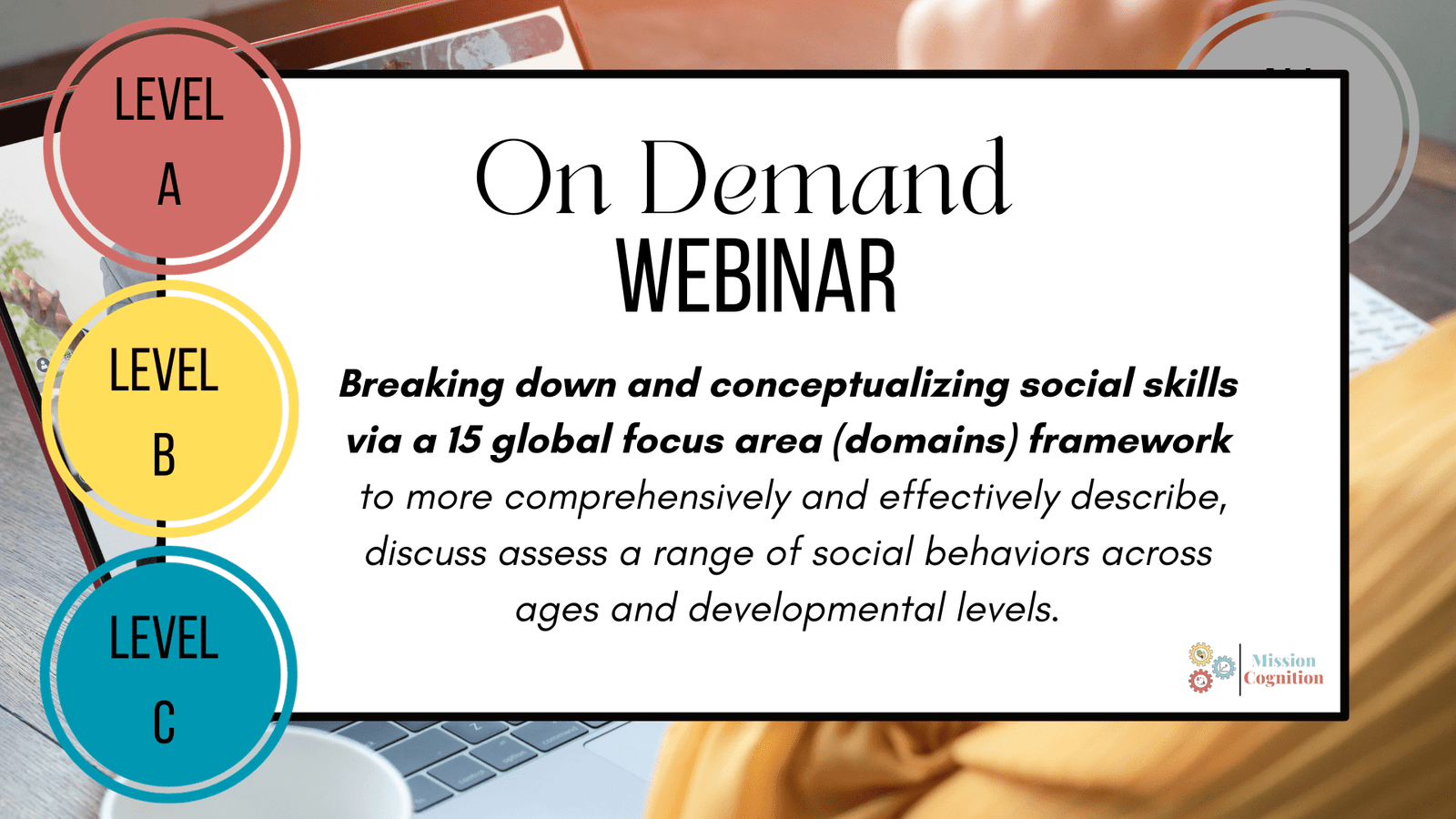On Demand WEbinars
Are you interested in expanding your knowledge of assessment, goal writing, and intervention pertaining to the development of play and social behaviors with an emphasis on relationship focused, neurodiversity affirming, trauma informed, evidence-based programming? You’ve come to the right place! Hop into any one or more of the on demand webinars of your choice. On demand webinars grant you immediate access at a time and place convenient for you.
Understanding the Model
What are we actually talking about when saying we support the development of social skills? The concept of social skills can be perceived as vast, overwhelming, and even abstract. Without a shared, operational definition, there is likely to be some misunderstanding or miscommunication when discussing social skills and social skill building. There is so much more to it than “my turn, your turn” and greeting others! By adopting a shared framework of social skills broken down into clearly defined domains, all team members are equipped with the information needed to comprehensively discuss and address learner’s specific and individual areas of strength and need.
Assessment
Gather information via indirect assessment, structured observation, and direct assessment to identify specific and individual areas of strength and need within a range of developmentally relevant global focus areas (social domains). Learn the value of open ended questions to get a more comprehensive picture of the learner as an individual to obtain valuable information to be used in the identification of priority global focus areas for intervention. Enrollees have access to video presentation as well as complete electronic version of Mission Cognition’s Social Interaction Global Focus Area (SI-GFA) Assessment tool with the option to request a hard copy at no additional cost. The assessment tool includes indirect, structured observation and direct assessment measures, gathering information on 15 global focus areas (social domains) with a total of 125 component skills. The SI-GFA tool is aligned with a neurodiversity affirming model of assessment.
Goals
Identify socially significant, developmentally appropriate, functional, and meaningful goals across a range of social domains. Write goals following the Mission Cognition framework to ensure the criterion for social significance and relevance have been met. Enrollees have access to video presentation as well as supplementary handouts inclusive of goal planning sheets, goal examples, and goal framework template.
DATA COLLECTION
Collecting and analyzing data to determine the effectiveness of the intervention and make data driven decisions as needed is required. Selecting the best fit data collection method for nuanced social goals however, can be tricky, Even more challenging is collecting data on multiple behaviors across multiple learners in a naturalistic setting. Learn strategies to accomplish it all efficiently and effectively without sacrificing critical data. Enrollees have access to video presentation as well as supplementary handouts inclusive of a list and description of data collection methods, sample graphs to represent data, and flowchart for data driven decision making as progress is monitored.
Intervention & Differentiated instruction
Once goals are identified, providers select and implement evidence-based interventions aligned with learner’s areas of strength and need. Learn how to identify the best fit play and social skills service delivery model and what differentiated instruction looks like for level A, B, and C learners preschool – young adult. Examples differentiated intervention/ service delivery models include embedded discrete trials and behavioral skills training (BST). Evidence-based practices highlighted include, but are not limited to antecedent based interventions, functional communication training, and modeling. Enrollees have access to video presentation as well as supplementary handouts inclusive of level based service delivery models of intervention, strategies for in vivo coaching and identifying natural and social sources of reinforcement, as well as BST lesson planning guides and scripts.
Core ACtivities
Mission Cognition’s model of assessment & intervention is built on the conceptualization of social skills as 15 primary Global Focus Areas (social domains). Specific types of activities align with each global focus area allowing for focused teaching, practice and contact with natural and social sources of reinforcement within the context of the core activity. Having an accessible library of core activities aligned with each of the global focus areas (social domains) allows not only for more efficient lesson planning, but also increases opportunities to teach, practice and reinforce target skills while programming for generalization as non critical stimuli are swapped out. Enrollees have access to video presentation as well as supplementary handouts inclusive of a list and description of 25+ core activities aligned with each global focus area.
PRIORITIZING PLAY
It’s through play that children have the most natural opportunities to interact socially. Without a play skills repertoire, children have decreased opportunities to join in with others and for others to join in with them. These decreased interaction opportunities result in decreased naturalistic teaching opportunities.
Play is not just a form of entertainment for children; it is a vital component of their overall development. Play provides opportunities for learning, problem-solving, social interaction, and emotional expression. Encouraging and facilitating play in early childhood helps lay the foundation for a range of essential skills that will benefit children throughout their lives.
There is no right or wrong way to play. Everyone deserves to find activities they enjoy and engaging in. As professionals, we can support our learners by facilitating the development of a play skills repertoire by following individual learners’ motivation, interests, and preferences.





